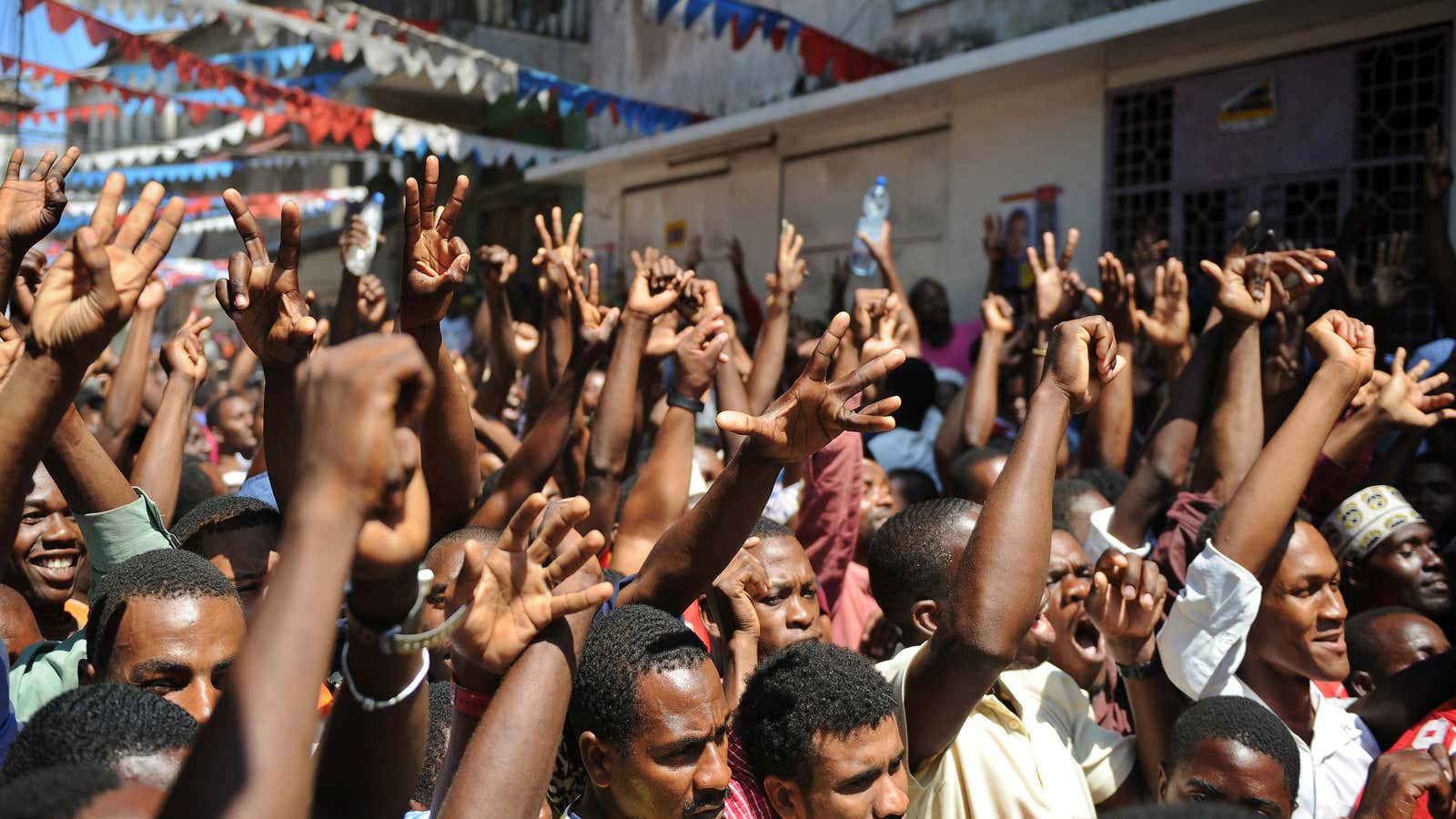Tanzania’s ruling party seems on track to retain power after a close-run election last weekend. But things aren’t so clear in Zanzibar, the semi-autonomous archipelago off the country’s coast, where the electoral commission is “annulling” the vote after reports of “cheating” and “double-voting” in some polling stations, the BBC is reporting. ”This election was unfair and did not adhere to the law and electoral process,” Jecha Salim Jecha, the chairman of the commission, reportedly said in a statement.
The BBC says that some electoral commissioners were partisan and “exchanged blows” over their differences. At some polling stations in the island of Pemba, there were more votes cast than registered voters, and allegations of vote-tampering.
Civic United Front (CUF), the main opposition party in Zanzibar—which, while a part of the republic of Tanzania, has its own government and votes for its own president and parliament—told Reuters that the annulment was just an attempt by the ruling party, Chama Cha Mapinduzi (CCM), to rig a vote it was losing.
“Our supporters know we have won,” CUF’s presidential candidate in Zanzibar, Maalim Seif Sharif Hamad, had declared on Oct. 26, the day after the voting. “They have gathered to celebrate. They have been extremely patient and it would be counterproductive to attempt to trick them out of their moment,” he said, according to a statement quoted by Al-Jazeera. ”For those who have still not come to grips with this reality, and still think there are ways of fabricating a different outcome, we would like you to know that it is over.”
Meanwhile, on the mainland, where results have been slowly trickling in, CCM’s candidate, John Magufuli, has built a significant lead against his rivals. But the race has been closer than expected, and the main opposition candidate, Edward Lowassa of Chadema, has alleged election fraud. Lowassa has reportedly said that nullifying the election in Zanzibar would affect the process in the mainland as well and called for the entire process to be halted.
The archipelago has been beset by electoral violence in the past. But after the 2010 election, a referendum enshrined a power-sharing agreement in Zanzibar’s constitution, giving the runner-up party in elections a deputy-president position. CUF believes the 2010 vote was also stolen from it—as Seif Sharif reiterated recently—but accepted the power-sharing compromise. It seems to be less willing to do that this time.
